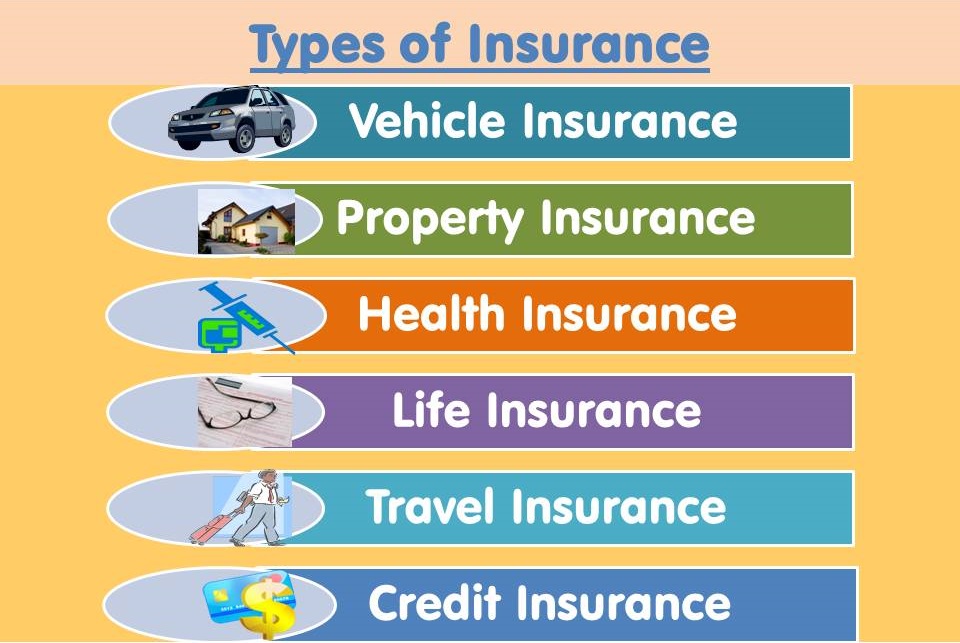Understanding Insurance: A Comprehensive Guide For Beginners
Insurance is a crucial aspect of modern financial planning. It provides a safety net that can protect individuals and families from unexpected events such as illness, accidents, property damage, or loss of income. However, for many people, the world of insurance can seem confusing and overwhelming, especially if they are just starting to explore it. This guide is designed to break down the essentials of insurance, explain the various types available, and help beginners understand how they work.
In this article, we’ll cover the basics of insurance, the different types of insurance policies, how to choose the right one, and what factors influence insurance costs. Whether you’re looking to protect your health, your car, your home, or your life, this guide will provide the knowledge you need to make informed decisions.
What is Insurance?

Insurance is a financial arrangement that provides protection against financial loss or risk. In an insurance policy, the policyholder pays a regular premium to an insurance company in exchange for coverage against specific types of risks or events. These risks can range from health issues to accidents or natural disasters. If a covered event occurs, the insurance company will provide compensation or reimbursement to the policyholder or a beneficiary.
At its core, insurance is a way to transfer risk. By pooling premiums from multiple policyholders, insurance companies can provide financial assistance to those who experience covered events. This helps reduce the financial burden that can result from unexpected situations.
How Does Insurance Work?
Insurance works on the principle of risk pooling. When you purchase insurance, you are essentially sharing your risk with others in the same pool. Each policyholder pays a premium, and the insurer uses these premiums to cover the claims of those who experience a loss or damage.
When you make a claim, the insurer will assess your situation based on the terms and conditions outlined in your policy. If the claim is valid, the insurer will compensate you according to the amount specified in your policy. It’s important to understand that insurance doesn’t cover everything—there are exclusions, limits, and conditions that apply to every policy.
Premiums and Deductibles
- Premium: The premium is the amount you pay to the insurance company in exchange for coverage. This can be paid on a monthly, quarterly, or annual basis, depending on your policy.
- Deductible: The deductible is the amount you must pay out of pocket before the insurance company begins to pay for covered claims. For example, if your car insurance has a $500 deductible, and you have a claim for $2,000 in repairs, you will need to pay the first $500, and the insurance company will cover the remaining $1,500.
Types of Insurance

There are several types of insurance policies, each designed to protect you from different kinds of risks. Here, we’ll take a closer look at the most common types of insurance:
1. Health Insurance
Health insurance is one of the most essential types of insurance. It helps cover the cost of medical expenses, including doctor’s visits, hospital stays, medications, surgeries, and preventative care. In many countries, health insurance is mandatory, while in others, it’s optional.
Health insurance plans can vary greatly in terms of coverage, costs, and benefits. Some health insurance plans cover a wide range of services, while others may only cover specific medical conditions. Policies may also have co-pays (a set amount you pay for a service) and deductibles that can affect how much you’ll need to pay for healthcare services.
2. Life Insurance
Life insurance provides a financial payout to the beneficiaries of the policyholder in the event of their death. This helps ensure that loved ones are financially supported during a difficult time. There are two main types of life insurance:
- Term Life Insurance: This type of insurance covers you for a specific term, such as 10, 20, or 30 years. It typically has lower premiums but does not build cash value.
- Whole Life Insurance: This type of insurance covers you for your entire life and can accumulate cash value over time, which you can borrow against.
3. Auto Insurance
Auto insurance is a type of coverage that protects you in the event of a car accident or theft. It can cover damages to your vehicle, the other party’s vehicle, and medical expenses arising from an accident. Auto insurance policies are often required by law, and they can include several types of coverage:
- Liability Coverage: Covers damages to others if you are at fault in an accident.
- Collision Coverage: Pays for damages to your vehicle in a collision, regardless of fault.
- Comprehensive Coverage: Covers damages to your car that aren’t related to a collision, such as theft or weather damage.
4. Homeowners Insurance
Homeowners insurance helps protect your home and belongings from damage or loss caused by events such as fires, theft, or natural disasters. It typically covers:
- Dwelling Coverage: Protects the physical structure of your home.
- Personal Property Coverage: Covers personal items inside the home, such as furniture and electronics.
- Liability Coverage: Provides protection if someone is injured on your property and sues you for damages.
Homeowners insurance is essential if you own a home, and it’s often required by mortgage lenders.
5. Disability Insurance
Disability insurance provides income replacement if you are unable to work due to illness or injury. There are two main types of disability insurance:
- Short-Term Disability: Provides coverage for a limited time, typically 3 to 6 months.
- Long-Term Disability: Provides coverage for a longer period, often until you reach retirement age.
This insurance can provide much-needed financial stability if you are unable to earn an income due to a disability.
6. Renters Insurance
Renters insurance is for people who rent their living space. It covers the cost of replacing your personal belongings in the event of damage or theft, as well as providing liability coverage if someone is injured in your home.
7. Travel Insurance

Travel insurance provides coverage for unexpected events that may occur while traveling, such as trip cancellations, lost luggage, medical emergencies, or flight delays. It can offer peace of mind when traveling, especially internationally.
Factors Affecting Insurance Costs
Several factors determine how much you will pay for your insurance premiums. These factors include:
- Age: Younger individuals tend to pay lower premiums for life insurance and health insurance, while older individuals may face higher rates.
- Health: For health insurance and life insurance, your overall health and medical history play a significant role in determining your premium.
- Location: Insurance rates can vary depending on where you live. For example, car insurance may be more expensive in urban areas than in rural areas.
- Coverage Limits: The higher the coverage limits you choose, the higher your premiums will be.
- Deductibles: A higher deductible usually leads to lower premiums, but it means you’ll have to pay more out of pocket before the insurer covers costs.
- Claims History: If you have a history of filing claims, you may face higher premiums due to the perceived higher risk.
How to Choose the Right Insurance
Choosing the right insurance requires careful consideration of your needs and financial situation. Here are some steps to help guide your decision:
- Assess Your Needs: Think about what types of coverage you need. Consider factors such as your health, your home, your car, and whether you have dependents.
- Compare Policies: Don’t settle for the first policy you find. Compare different insurers, coverage options, and premiums to find the best deal.
- Understand the Terms: Before purchasing any policy, make sure you understand the terms, exclusions, and limitations. Ask questions if something is unclear.
- Look for Discounts: Many insurance providers offer discounts for bundling policies (e.g., combining auto and home insurance), having a clean driving record, or maintaining a healthy lifestyle.
- Review Your Policy Regularly: Life changes, and so do your insurance needs. Be sure to review your policies periodically and make adjustments as necessary.
Also Read : Top 10 Insurance Policies Every Family Should Consider
Conclusion
Insurance is an essential part of personal finance that provides protection against life’s unexpected events. By understanding the basics of insurance, including the different types of policies available and how they work, you can make informed decisions that will help protect your health, property, income, and loved ones.
While insurance can seem complex, it’s an investment in your future and peace of mind. By comparing policies, understanding your needs, and choosing the right coverage, you can secure the protection you need without breaking the bank.
FAQs
1. What is the difference between term life insurance and whole life insurance?
Term life insurance provides coverage for a specific period, while whole life insurance offers lifelong coverage and accumulates cash value over time. Term life is typically more affordable, but whole life insurance can serve as an investment.
2. How do I know how much coverage I need?
The amount of coverage you need depends on various factors, such as your financial obligations, dependents, and assets. For life insurance, consider how much your loved ones would need to maintain their standard of living in your absence.
3. Why are insurance premiums different for different people?
Insurance premiums vary based on factors like age, health, location, coverage amount, and the level of risk associated with the insured event. Insurance companies assess these factors to determine how much they’ll charge.
4. Can I change my insurance policy after purchasing it?
Yes, most insurance policies can be adjusted after purchase. You can increase or decrease coverage, change beneficiaries, or modify your deductible. Contact your insurance provider to make adjustments as needed.
5. How can I reduce my insurance premiums?
You can reduce premiums by shopping around for the best rates, increasing your deductible, bundling policies, maintaining a good credit score, or taking advantage of discounts offered by insurers.







